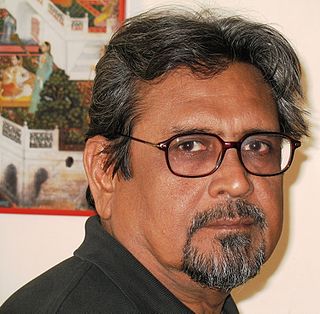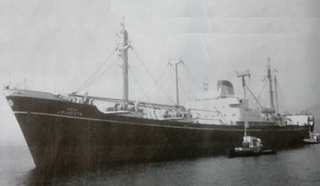
The Swadeshi movement was a self-sufficiency movement that was part of the Indian independence movement and contributed to the development of Indian nationalism. Before the BML Government's decision for the partition of Bengal was made public in December 1903, there was a lot of growing discontentment among the Indians. In response the Swadeshi movement was formally started from Town Hall at Calcutta on 7 August 1905 to curb foreign goods by relying on domestic production. Mahatma Gandhi described it as the soul of swaraj (self-rule). The movement took its vast size and shape after rich Indians donated money and land dedicated to Khadi and Gramodyog societies which started cloth production in every household. It also included other village industries so as to make village self-sufficient and self-reliant. The Indian National Congress used this movement as arsenal for its freedom struggle and ultimately on 15 August 1947, a hand-spun Khadi tricolor Ashoka Chakra Indian flag was unfurled at Princess Park near India Gate, New Delhi by Jawaharlal Nehru.

Walchand Hirachand Doshi was an Indian industrialist and the founder of the Walchand group. He established India's first modern shipyard, first aircraft factory and first car factory; he also established construction companies, sugarcane plantations, sugar factories, confectioneries, engineering companies and many other businesses.

Vallinayagam Olaganathan Chidambaram Pillai , also known as Kappalottiya Tamizhan, was an Indian freedom fighter and a prominent leader in the Indian independence movement. He founded the Swadeshi Steam Navigation Company in 1906 to compete against the monopoly of the British India Steam Navigation Company (BISNC). He launched the first indigenous Indian shipping service between Tuticorin (India) and Colombo with the Swadeshi Steam Navigation Company (SSNC), competing against British ships. Tuticorin Port Trust, one of India's thirteen major ports, is named after him. Once a member of the Indian National Congress, he was later charged with sedition by the British government and sentenced to life imprisonment, and his barrister license was revoked.
The Marine Engineering and Research Institute (MERI), formerly known as the Directorate of Marine Engineering Training (DMET), now known as Indian Maritime University - Kolkata Campus and Mumbai Port Campus, is India's national institute and one of the institutes for the training of Marine Engineers and Polyvalent Officers.
Steam Navigation Companies became widespread during the 19th century after the development of steam-powered vessels, both steamboats, which were generally used on lakes and rivers, and ocean-faring steamships. Companies that share the name Steam Navigation Company include the following, listed by their country of ownership.

The Scindia Steam Navigation Company, founded in 1919, is the second oldest shipping company of India. The first being the Swadeshi Steam Navigation Company of VOC Pillai in today's Tamilnadu that was founded in 1906.

Ajit Gulabchand is an Indian industrialist. Gulabchand is the chairman and managing director of Hindustan Construction Company. Gulabchand serves as chairman of the board of governance at National Institute of Construction Management & Research (NICMAR) and as chairman of Walchand College of Engineering, Sangli.

Carmichael Road is an upmarket residential street of Mumbai, India. Situated on a ridge in South Mumbai, it is now officially called M.L. Dahanukar Marg. It has many old style bungalows and apartment houses, such as the art deco Kamal Mahal of film director, Kamal Amrohi. The street and surrounding neighbourhood is and has been home to Mumbai's rich and famous such as the Modys, the Commissariats, the Dahanukars, the Somaiyas, the Lalbhais, the Walchands and the Morarjees.

Narottam Morarjee was an Indian businessperson with major interests in shipping and textiles.

Hindustan Shipyard Limited (HSL) is a shipyard located in Visakhapatnam on the east coast of India.

Sumati Morarjee, also known as the first woman of Indian shipping, is credited to have become the first woman in the world to head an organisation of ship owners, the Indian National Steamship Owners Association which has been traditionally a male bastion. She has been awarded Padma Vibhushan, the second highest civilian honor of India in 1971 for her civil services.
Walchand group is a business organization that came into existence in the 20th century, founded by industrialist Walchand Hirachand Doshi.
Lalchand Hirachand Doshi was a scion of Walchand group, noted industrialist, philanthropist and Jain social leader.
Ratanchand Hirachand Doshi (1902–1981) was a scion of Walchand group, an industrialist, philanthropist, freedom fighter, and Jain social leader.

Amrit Gangar is an Indian film scholar, historian, critic, curator and writer from Mumbai, Maharashtra, India.
Mansukhlal Atmaram Master (1884–1970) was an Indian shipping professional, writer and the general manager of Scindia Steam Navigation Company, one of the oldest shipping companies in India. Born in 1884 and a lawyer by profession, he was reported to have been a trusted associate of Walchand Hirachand, the founder of the company. He was one of the delegates who represented the Government of India at the Safety of Life at Sea international convention which prescribed safety measures for the maritime industry and was an elected plenipotentiary at the convention. He was the Vice- President of the All-India Organisation of Industrial Employers and was the author of several publications on shipping and economy, including Resources for the Third Plan and So I Rest on My Oars. The Government of India awarded him the third highest civilian honour of the Padma Bhushan, in 1968, for his contributions to Indian shipping industry.
Shanti Kumar Morarjee was a noted industrialist, businessman and close associate of Mahatma Gandhi.

SS Jalabala was the cargo steamship owned by Scindia Steam Navigation Company Ltd., the British Indian shipping company, which was completed in 1927. She was torpedoed and sunk in the Laccadive Sea west of Cape Comorin by the German submarine U-532 with the loss of five of her 77 crew members on 11 October 1943 during World War II.
Mulagada is a neighbourhood in the city of Visakhapatnam, India. It is one of the 46 mandals in Visakhapatnam District. It is under the administration of Visakhapatnam revenue division and the headquarters is located at Mulagada. It is located on the south fringe of Visakhapatnam city.

Sir Lallubhai Samaldas Mehta was a wealthy aristocrat and revenue commissioner since the age of 18 in the court of the Maharaja of Bhavnagar in Gujarat. He was involved in the establishment of numerous industries in western India, particularly in the shipping industry. He also took an interest in the cooperative movement and presided over the Swadeshi League and is known as the Father of Co-operative Movement in India. The Samaldas College in Bhavnagar was established by Maharaja of Bhavnagar in his father's memory. He also took an interest in national politics and was associated with the leaders of the time.












